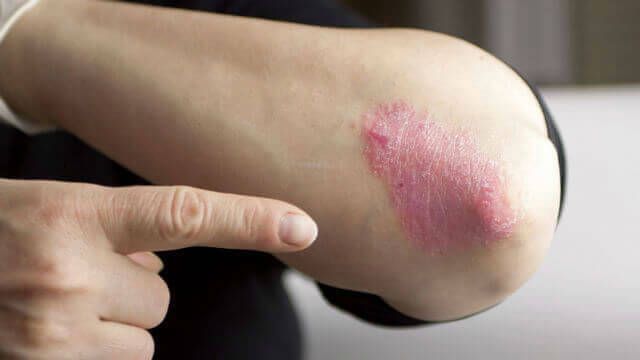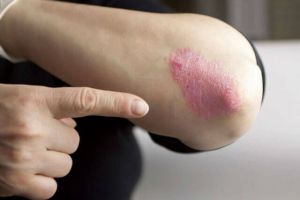
The symptoms of psoriasis can be difficult to manage, and some of the prescription medications out there can have worrisome side effects. Luckily, nature has the answer.
Here are some natural treatments you can use, on their own or to help complement your current therapy to reduce your symptoms.
Aloe vera
The gel of the aloe plant can be applied topically to the skin three times each day as needed. It has been shown to help decrease redness and reduce scaling. For the freshest aloe, consider keeping a plant or two in your home.
Epsom salts
Try adding a quarter-cup of Epsom salts, or Dead Sea salts, to a warm or tepid bath, and then soak in the tub for 15-20 minutes to ease itching and remove scales. Be sure to use warm water rather than hot. Apply a moisturizer and gently massage it into the skin once you are out of the tub.
Turmeric
This miracle herb is notorious for its antioxidant and anti-inflammatory properties. One of its components, curcumin, is able to alter TNF cytokine expression, which is believed to minimize psoriasis and flares of psoriatic arthritis.
Turmeric can be taken as a supplement, but try it in food first – it’s delicious! According to the Food and Drug Administration, a daily dose of 01.5 to 3.0 grams is considered safe.
Fish oil
Fish oil can be applied directly to the skin as a topical treatment, or taken as an oral supplement. Talk to your doctor before taking it internally, however, as high-doses of fish oil can produce side effects like fishy aftertaste, nausea, and heartburn. Daily doses of higher than 3 grams can lower your blood pressure and increase your risk of bleeding.
Dietary changes
You may find a reduction in symptoms if you eliminate processed and greasy foods from your diet. If this still does not work, try cutting out red meats, dairy products, and nightshade vegetables for two weeks each, to see if your symptoms improve.
Foods that may benefit you are cold water fish, flaxseeds, walnuts and other plant-based sources of omega-3s, as well as colorful fruits and vegetables.
When in doubt about what to eliminate from your diet and what to include, it can do a world of good to talk to a nutritionist or a health professional you trust.
Hydration
 Psoriasis thrives in a dry environment. Drinking water to stay hydrated is a great way to keep your skin from getting too dry (along with being important for every system of your body). Also, using a humidifier can assist with keeping moisture in your skin, particularly in the dry winter months.
Psoriasis thrives in a dry environment. Drinking water to stay hydrated is a great way to keep your skin from getting too dry (along with being important for every system of your body). Also, using a humidifier can assist with keeping moisture in your skin, particularly in the dry winter months.
Yoga
Yoga is an incredible stress reliever. It can help ease the itch and pain of psoriasis plaques by reducing your stress load. As little as 20 minutes a day of yogic meditation, breathing, and stretching can also help improve your range of motion if you suffer from psoriatic arthritis.
Any one of these methods, or a combination of a few, may be just what you need to provide you with significant relief. However, as with any form of therapy, please consult your physician before starting a new treatment.
-The Alternative Daily
Sources:
https://www.psoriasis.org/treating-psoriasis/complementary-and-alternative/herbal-remedies
http://www.psoriasis.org/treating-psoriasis/complementary-and-alternative/diet-and-nutrition/anti-inflammatory-diet
http://www.everydayhealth.com/psoriasis-pictures/most-popular-psoriasis-home-remedies.aspx#10

